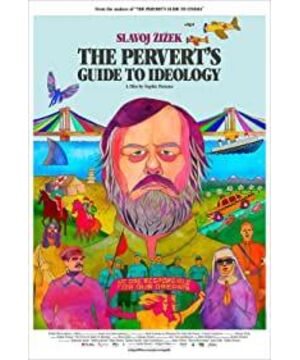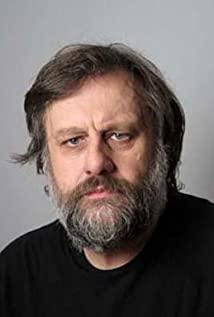The film "The Ideological Guide to Perverts" was written and starred by the Slovenian philosopher and Lacanian psychoanalyst Slavoj Žižek, and directed by Sophie Fiennes. Like Žižek's other "Perverted Film Guide", it sketches a psychoanalytic theoretical framework for understanding art and the world by traveling between famous film scenes, and is a "documentary" in a sense. . As Žižek says in the film: "It's not that we don't know what we don't know; it's: we know very well, but pretend not to know" This is ideology in its purest form. Compared with many popular or academic texts written by Žižek, there is no geocentric discovery in the film, nor the joy of Kant's reflection on the twelve categories, but a consistent way of sorting out the working mode of language (or symbols). If you have been in contact with Zizek more or less, then the title and editing format of the film will seem too familiar to you: a monochrome background with the words "starring actor: Zizek", and then the picture is correct. The corner line was split, and it became the name and role of the next mastermind. Doesn't this gap presage the inconsistency of the symbolic world that makes it work so smoothly? If some readers think this is an exaggerated reading, let's go back to a film editing technique that made Hong Kong audiences laugh: Zizek takes us into the world of the movie "Extreme Space" at the beginning, two middle-aged The man was fighting by the trash can, and the camera turned- A chubby, heavily accented Žižek continues his argument in the same scene; the narrative is not interrupted, and the audience taunts for a while and then slumps back into the film. The inconsistency of Zizek's comical appearance and the film's excerpts is perfectly stitched together. Isn't this the purest structure of "fantasy"? The appearance of this inconsistency reassures us of distancing itself from it, making sure that it is not real, because, when something is too real, it immediately turns into a trauma that is difficult to face: "We are not unaware that we are What we don't know; it's: we know very well, but pretend we don't know." Some critics may regard this "documentary" as a continuation of the 2006 "Perverted Film Guide" in a sense, even titled The title of "The Pervert Movie Guide 2", but this is actually a misunderstanding. The two sets of "documentaries" are extremely similar in style and have no inheritance relationship. Unlike the previous one, "The Pervert's Guide to Ideology" focuses entirely on real-world ideological analysis, without any analysis of "sex" and "movie": but there will be Coca-Cola, Kafka, Familiar names like Starbucks, Benjamin, etc. If you are familiar with Zizek's audience, you will notice that some concepts and examples come from "The Sublime Object of Ideology" (Zizek's first English book) published in 1989. We will also hear the familiar concepts of the "big other" and "death drive". Ideological critique is Zizek's lifelong work, and "The Pervert's Guide to Ideology" is a set of "documentaries" about ideological critique in its pure form. The film is 2 hours and 14 minutes long, but if you think that reading Zizek's book is to watch a "pervert's ideology guide", you are very wrong. As Zizek said, in today's world, images are real. Theory is one thing, how to transform the form of the theory into the form of an image is another logic. Or, as Žižek often emphasizes, our problem is not being too superstitious with fantasies, but not being serious enough: beyond the fantasies of reality, there are realities revealed in fantasies. So what about viewers who haven't been exposed to Žižek? As long as the logic is transformed, you can start with movies and then drill into theoretical works. As I said at the outset: Zizek doesn't speak of earth-shattering discoveries in the film: "It's not that we don't know what we don't know; it's that we know very well and pretend not to know."
View more about The Pervert's Guide to Ideology reviews







